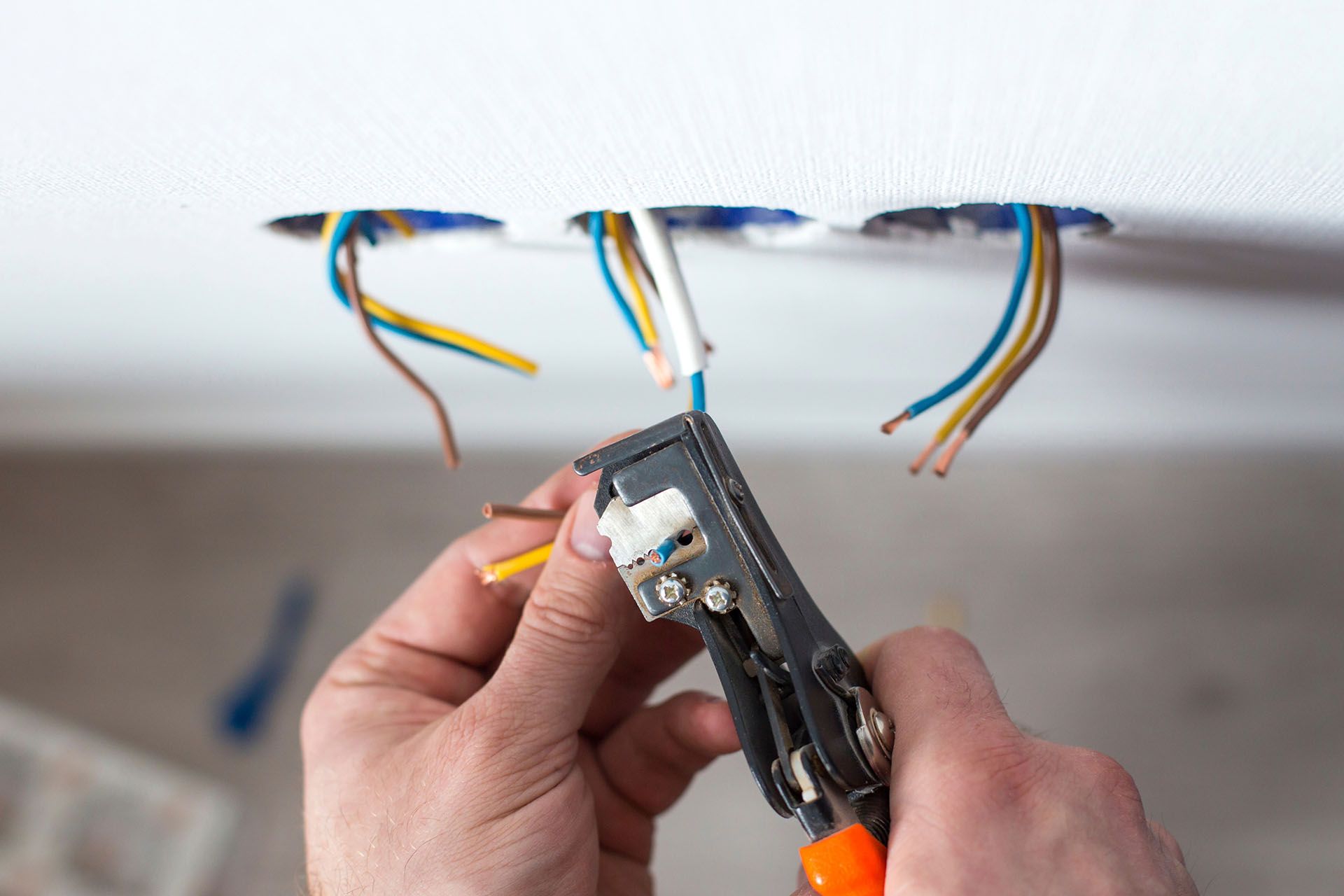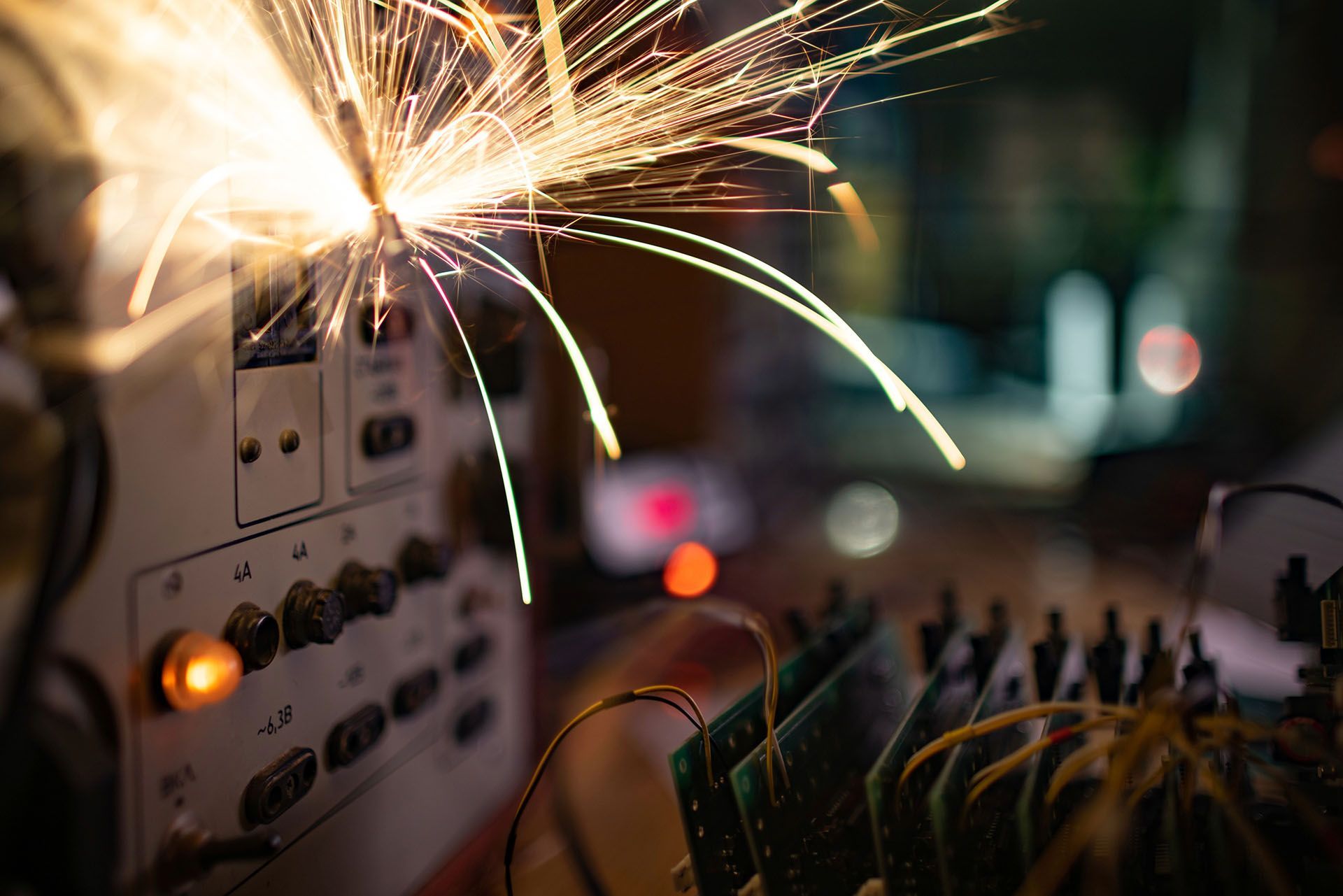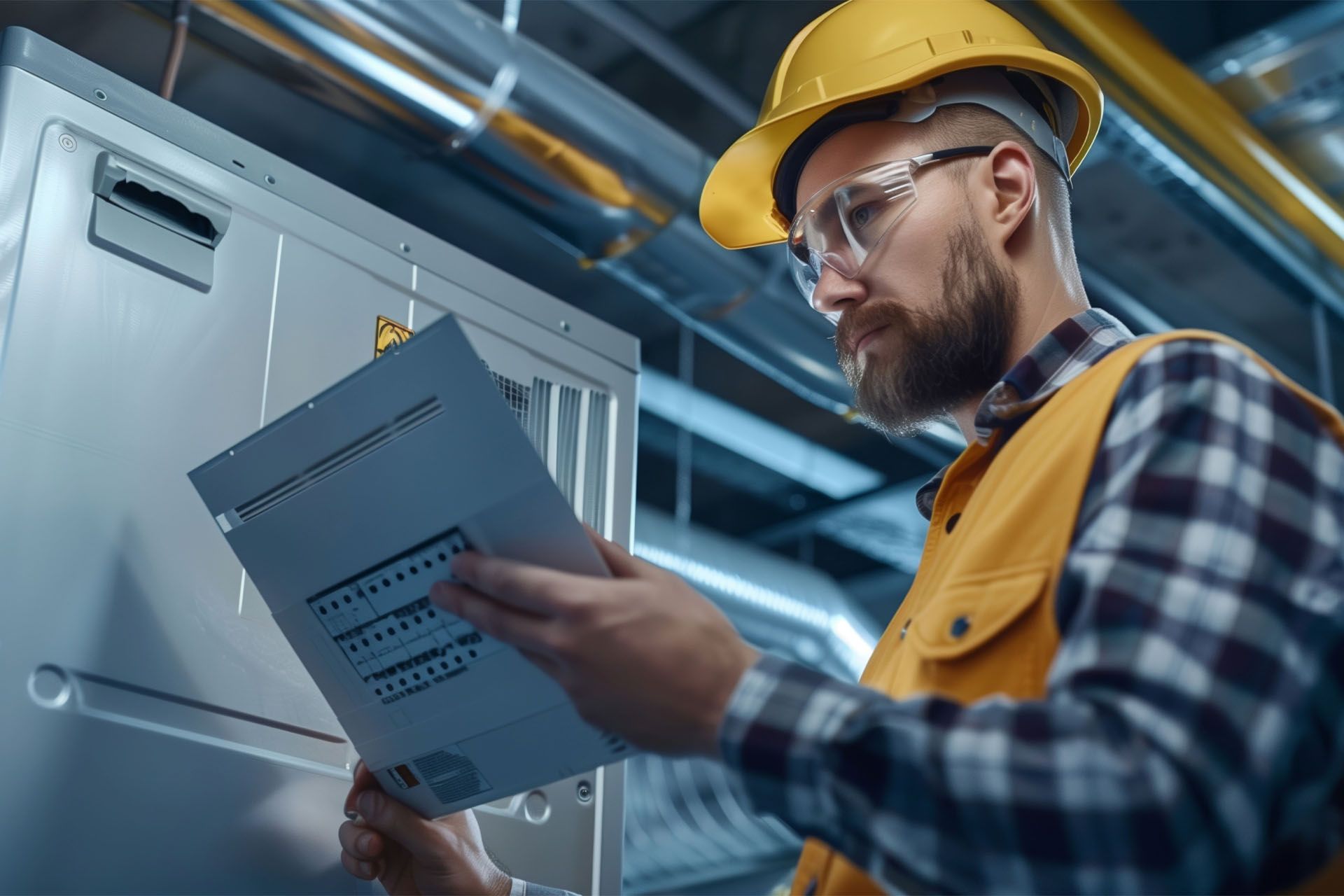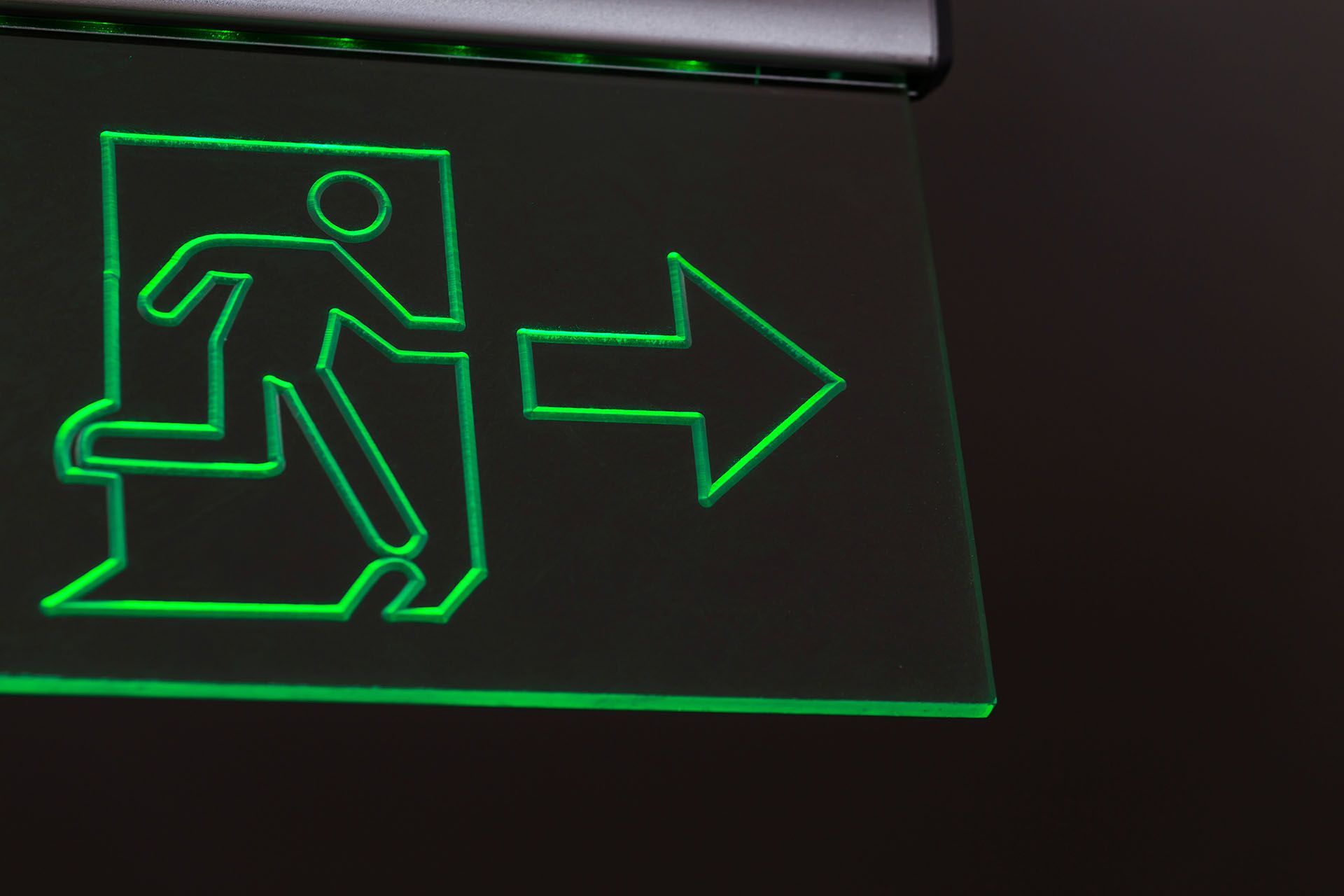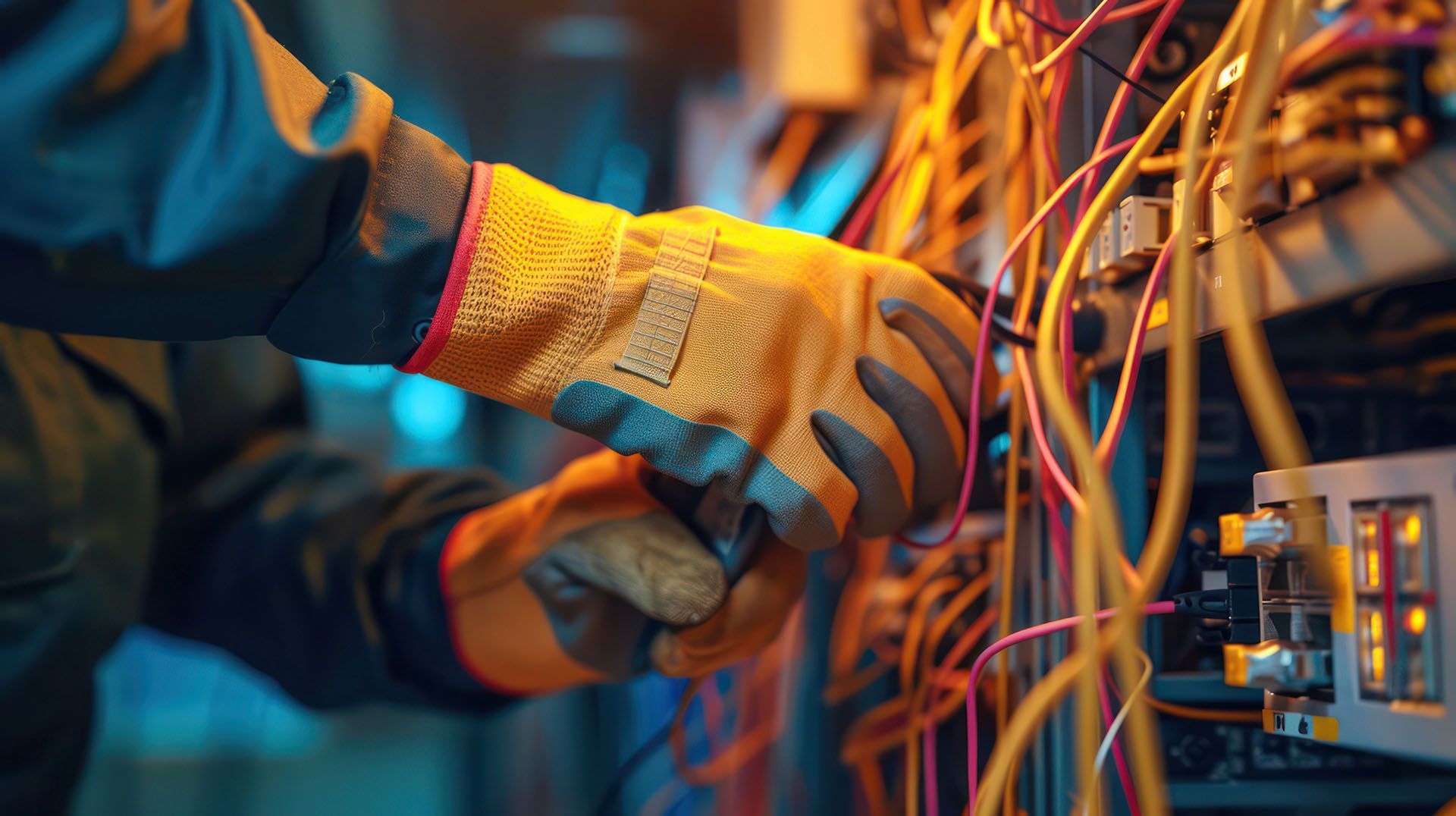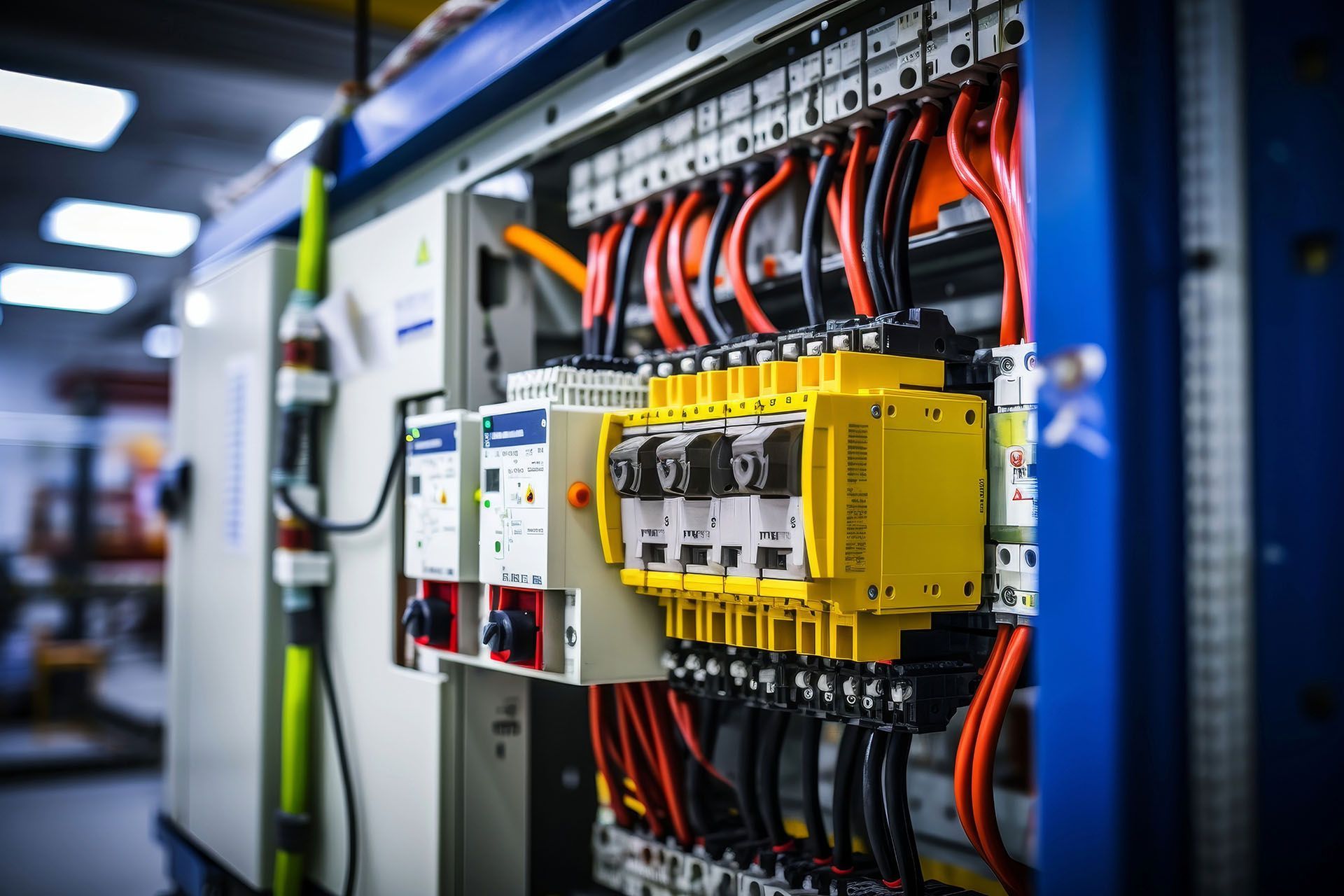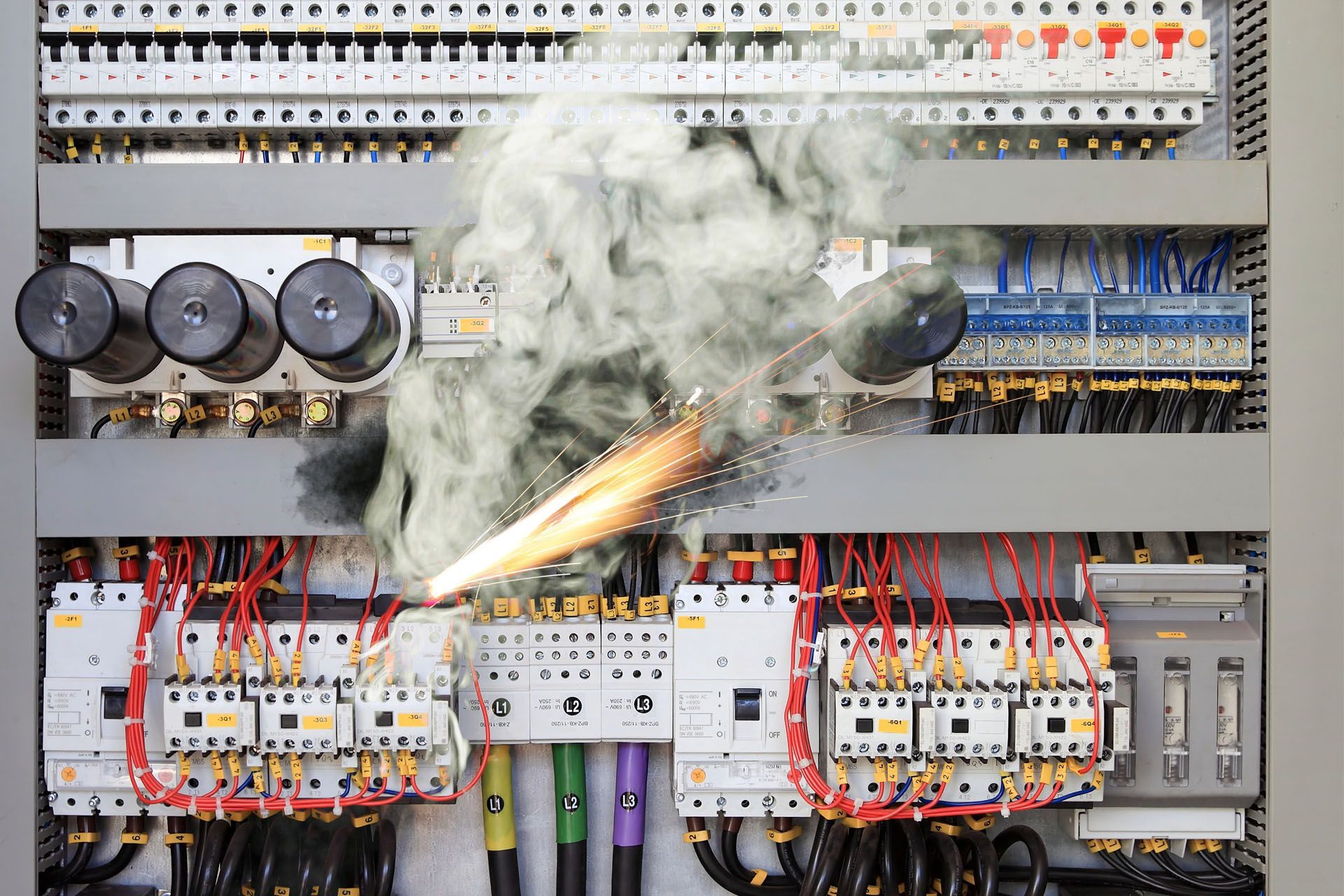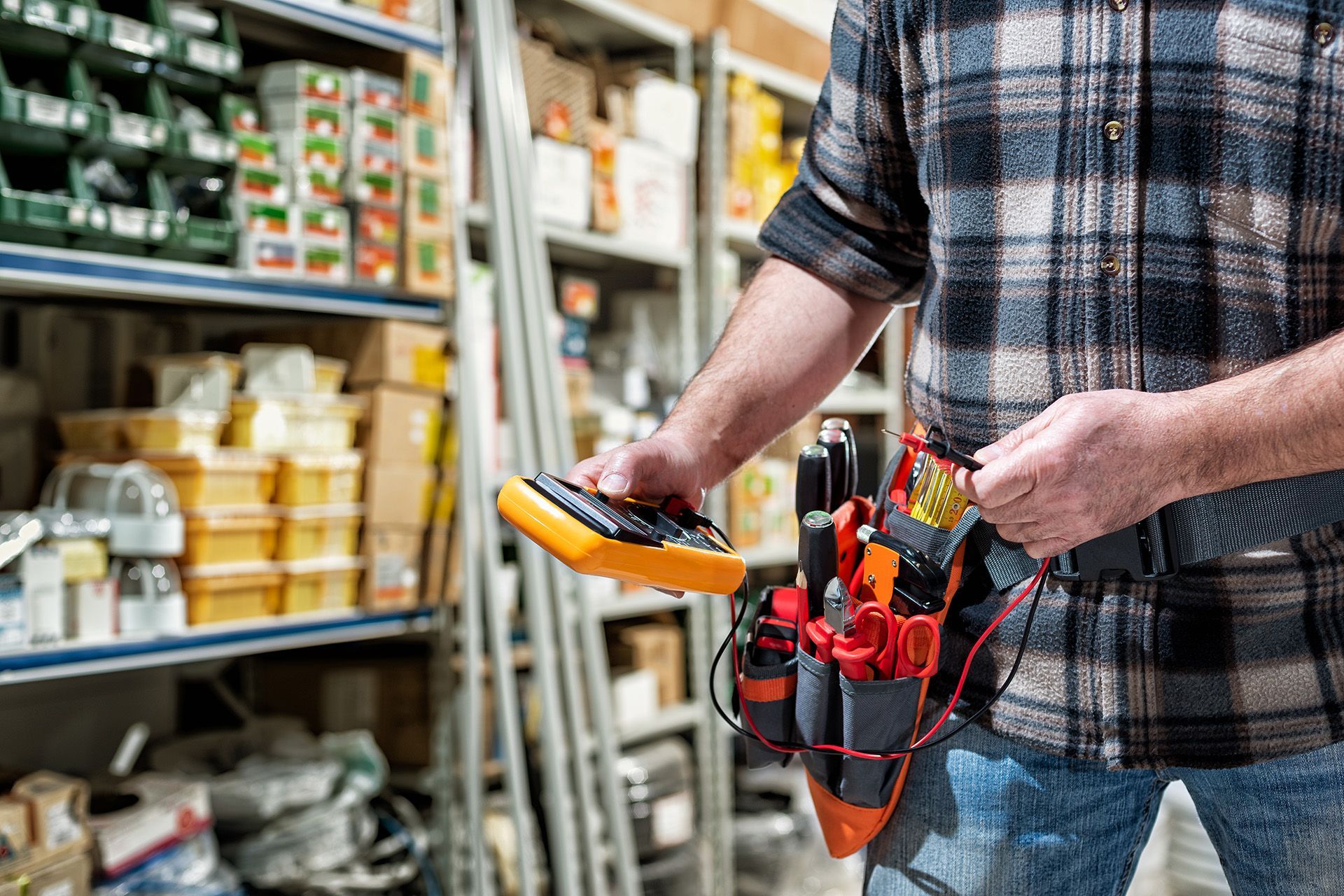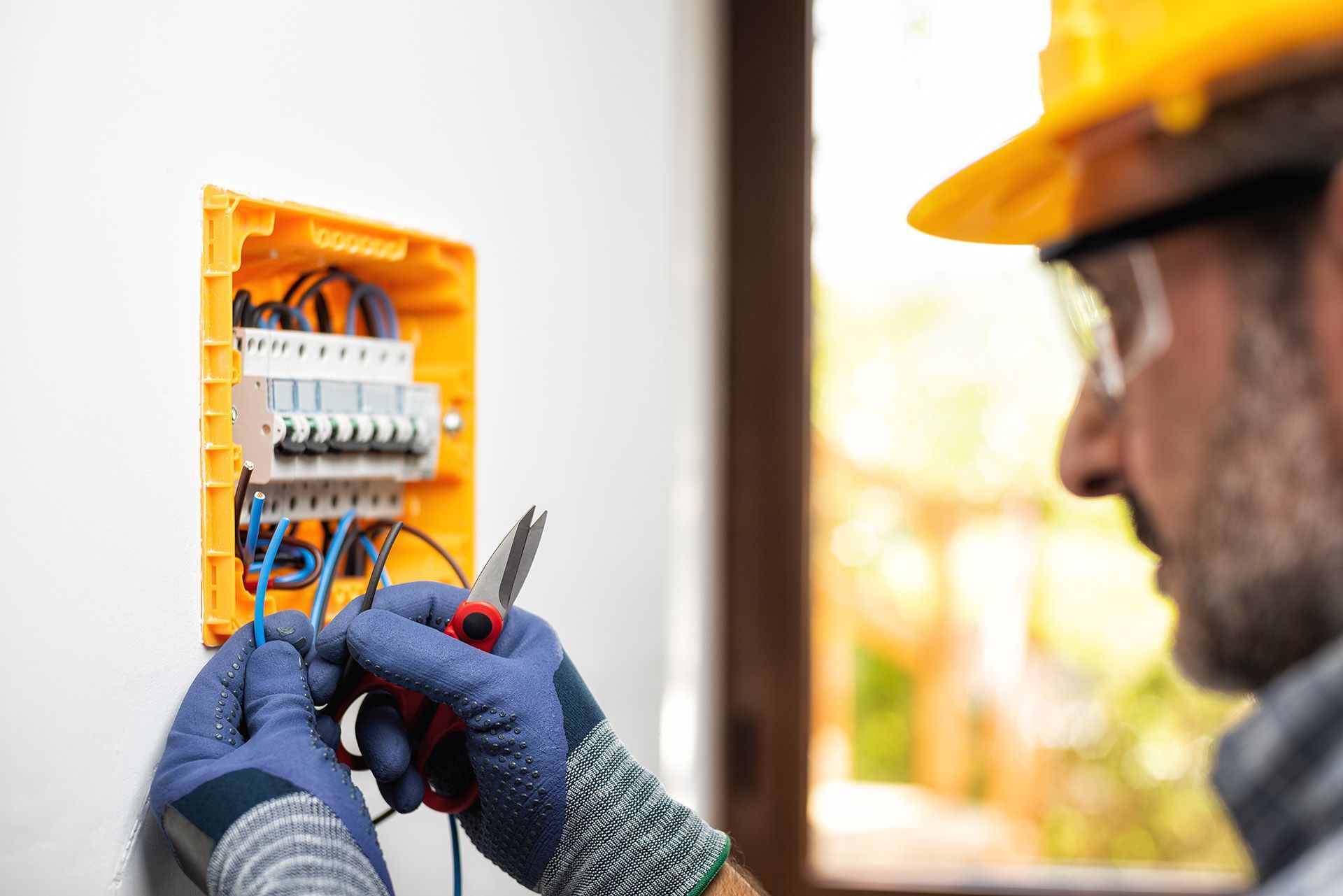Address: Unit 19, 54 Fairey Rd, South Windsor NSW 2756
3-Phase Electric Power: What It Is and Why It Matters for Your Business
When it comes to powering your business, the type of electrical system you use can make a significant difference in your operations, efficiency, and costs. While most small-scale businesses and homes rely on single-phase power supply, many industrial and commercial enterprises benefit greatly from three-phase power. But what exactly is three phase power supply, and why is it essential for your business?
In this blog, we’ll explore what sets three-phase power apart from single-phase power, its benefits, and when you should consider upgrading to a three-phase system to enhance the reliability, efficiency, and scalability of your business.
What is a three-phase power and how does it work?
A three-phase electric power system is a type of alternating current (AC) electrical distribution used for efficient electricity transmission over long distances and for powering heavy-duty industrial equipment. It consists of three separate electrical circuits offset by 120 degrees in phase from one another. This arrangement ensures that as one phase reaches its peak voltage, the other two are at different stages of their cycles, providing a continuous and balanced power supply. The phases are typically designated as Phases A, B, and C.
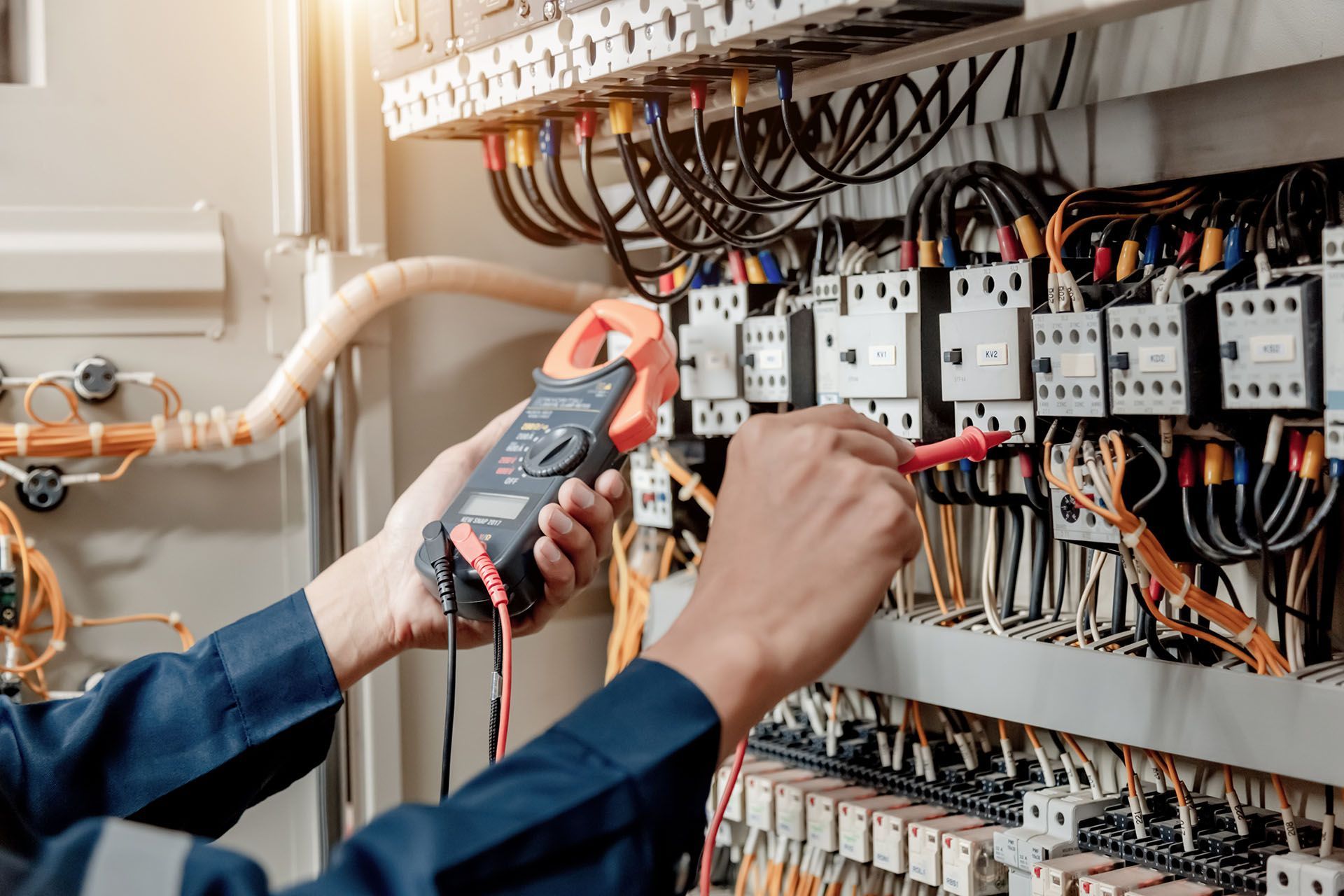
Single-Phase vs. Three-Phase Electric Power
Single-phase power uses one voltage wave and is suitable for small-scale applications like homes and small businesses, offering lower power and fluctuating output. It is cost-effective and easy to install but less efficient for high-demand equipment.
In contrast, three-phase electric power uses three voltage waves offset by 120 degrees, providing continuous and consistent power. It is ideal for industrial and large commercial use, delivering higher power with lower current, resulting in greater efficiency and reduced energy loss.
Benefits of Three-Phase Electric Power for Businesses
Three-phase electric power offers several benefits for commercial and industrial applications, especially those with high power demands or heavy machinery. Here are the key advantages:
Higher Efficiency
3-phase power systems provide a more consistent and balanced electrical supply, reducing power losses and improving overall energy efficiency.
Reduced Equipment Size and Cost
Due to the balanced load, equipment such as motors and transformers can be smaller and more cost-effective than single-phase power systems, as they need less capacity to deliver the same power.
Improved Motor Performance
3-phase motors run more smoothly, produce less vibration, and have a higher torque compared to single-phase motors, leading to better performance and longer equipment lifespan.
Scalability
3-phase systems can easily accommodate future expansion of power needs as businesses grow, making them a more versatile solution for companies with evolving requirements.
Lower Operating Costs
With more efficient power transmission and reduced energy losses, businesses can lower their overall electricity costs.
Consistent Power Supply
3-phase systems provide a more stable and continuous electricity supply, which is crucial for operations that rely on precise and uninterrupted power, such as manufacturing and industrial facilities.
Better Load Balancing
The 3-phase power supply balances the load across the electrical system, preventing overloading and enhancing the reliability of power distribution.
Less Voltage Fluctuation
The three-phase power system has less voltage fluctuation, which helps prevent damage to sensitive equipment and reduces the risk of costly outages.
Optimal for Large Equipment
3-phase power is ideal for running large machinery, heavy equipment, and industrial tools that require significant power, ensuring reliable operation and efficiency.
Energy Cost Savings
Businesses that consume large amounts of energy benefit from the reduced cost per unit of electricity with 3-phase systems, making them more economically viable for high-power usage.
Enhanced Reliability and Safety
The balanced nature of 3-phase power reduces the risks of overloading and electrical faults, contributing to a safer work environment.
Better Power Factor
3-phase systems typically have a better power factor than single-phase systems, which can reduce the need for corrective equipment and help avoid penalties from power providers.
Applications of Three-Phase Power Supply
Three-phase power supply has a wide range of applications due to its efficiency and ability to provide a steady, high-capacity power supply. Here are some common applications:
Industrial Machinery and Equipment
Three-phase power is essential for running large industrial motors, pumps, compressors, and other heavy-duty equipment that require constant, high torque for smooth operation. Common in factories, three-phase power efficiently powers conveyor belts that move products through assembly lines.
Manufacturing and Production Facilities
Continuous, reliable power is needed to keep production lines running without interruptions. In manufacturing, three-phase systems provide the high energy needed for heavy welding machines and other fabrication tools. High-precision computer numerical control (CNC) machinery benefits as well from the steady electricity supply of a three-phase system.
HVAC Systems
Commercial and industrial HVAC systems often rely on three-phase power to maintain consistent heating, ventilation, and air conditioning in large buildings and factories. Moreover, heavy-duty heating elements used in industrial processes also require three-phase power.
Commercial Buildings
Large office buildings and malls use three-phase power to power extensive lighting setups efficiently. These systems also require a constant and balanced electricity supply for smooth operation.
Data Centres and IT Equipment
Data centers rely on three-phase power to provide consistent and reliable energy for servers and IT equipment, which is essential for maintaining uptime and data integrity. Additionally, three-phase power also supports the efficient operation of cooling systems.
Renewable Energy Systems
A 3-phase power supply is crucial in renewable energy systems, enhancing energy conversion and distribution efficiency. In a solar power system, it feeds electricity into the grid effectively, providing a balanced and continuous power supply. This setup maximises energy use, reduces loss, and maintains stable voltage.
Transportation and Infrastructure
Electrified rail systems, subway trains, and electric vehicles often utilise three-phase power for propulsion and operation. Public transportation networks that use electric trams also benefit from the high efficiency and reliability of three-phase power.
Large-Scale Agricultural Equipment
Agricultural businesses use 3-phase systems to power high-capacity pumps for irrigation. Facilities that process food and other agricultural products also rely on three-phase power for machinery and equipment.
Mining and Quarry Operations
Heavy machinery used for drilling, crushing, and transporting mined materials operates more effectively with three-phase power. For pumping stations, this is used to remove water and maintain safe working conditions.
Construction Sites
Construction projects require large equipment like electric cranes, mixers, and other power tools that benefit from the efficiency of three-phase power.
Commercial Refrigeration
Three-phase power supports large refrigeration systems for cold storage and food preservation in warehouses and distribution centres.
When To Consider Upgrading to 3-Phase Power for Your Business
Upgrading to 3-phase power can be a significant investment, so it’s important to know when it makes sense for your business. Here are some key indicators that suggest it may be time to consider the upgrade:
1. High Power Consumption
If your business is experiencing a consistent increase in energy usage, especially with high-powered machinery or equipment like industrial motors, pumps, and HVAC systems that need a reliable power supply for optimal performance, 3-phase power can help meet these demands more efficiently than a single-phase power system.
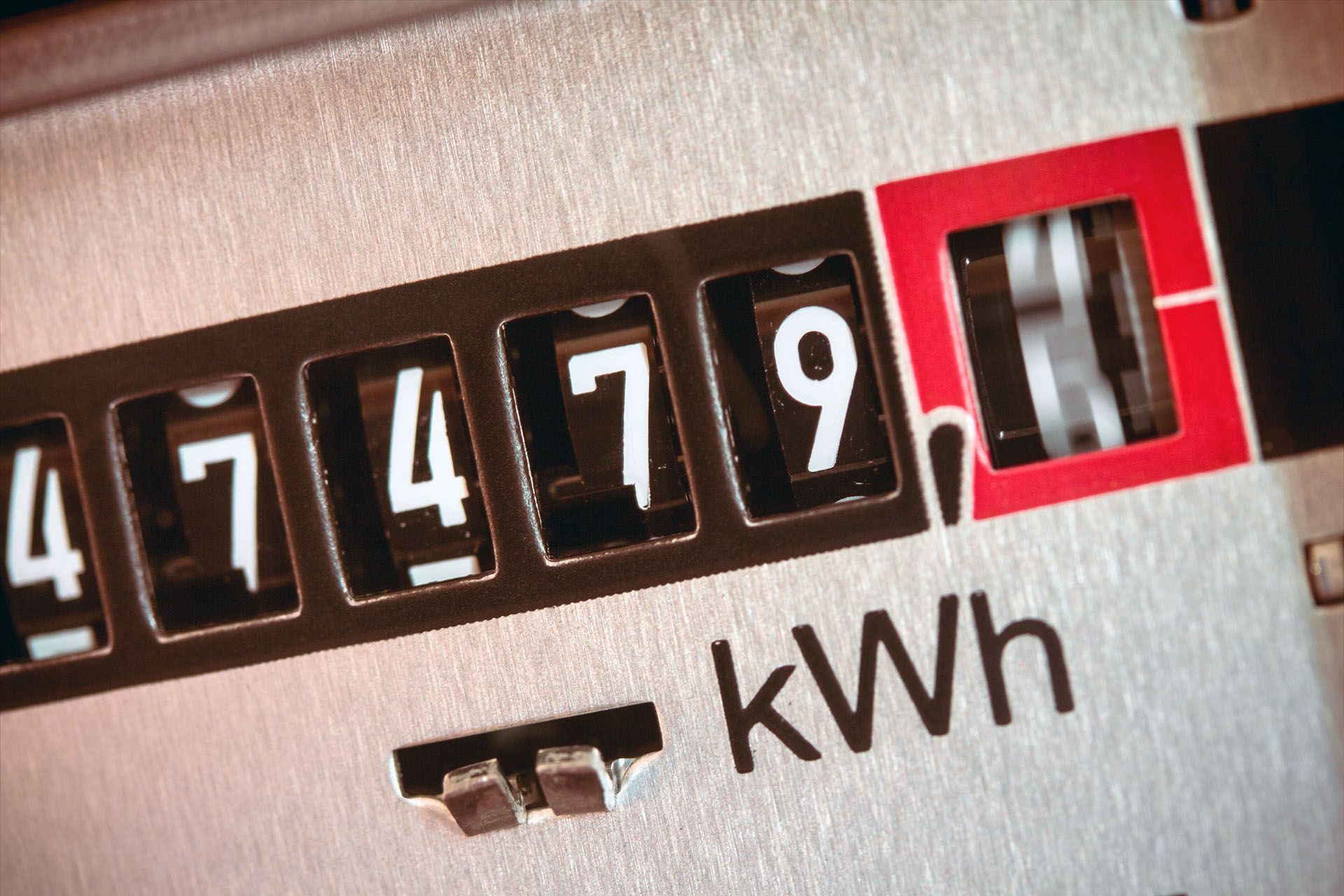
2. Need for Improved Efficiency and Cost Savings
3-phase systems are more efficient and have lower power losses compared to single-phase power systems. If you’re looking to reduce your energy bills and improve the overall efficiency of your operations, upgrading to 3-phase power can be a worthwhile investment. With more balanced loads and fewer energy fluctuations, 3-phase power can lead to significant cost savings in the long term, especially for businesses that run machinery or equipment continuously.
3. Reliability and Reduced Downtime
3-phase systems provide a more stable and continuous power flow, reducing the likelihood of voltage drops and interruptions. This is especially important if your business relies on non-stop production and cannot afford downtime. Compared to a single-phase system, which can be prone to fluctuations and interruptions, the consistent power delivery of 3-phase systems reduces wear and tear on machinery, leading to longer equipment lifespans and fewer maintenance needs.
4. Expansion and Future Growth
If you anticipate growth and plan to expand your operations, upgrading to 3-phase power can make it easier to add more equipment and handle higher electrical loads. Unlike a single-phase system, which may struggle to support increased demands, 3-phase systems are better suited for future upgrades and modifications, making your business more adaptable as your needs evolve.
5. Higher Power Requirements for Specific Applications
Businesses often use machinery that requires significant power, such as CNC machines, large compressors, or industrial pumps. Since a single-phase system may not provide sufficient power for these high-demand machines, a 3-phase system is essential for their efficient operation. For businesses that operate large-scale heating, ventilation, and air conditioning (HVAC) systems, 3-phase power guarantees these systems run efficiently without overloading.
6. Lower Maintenance Costs
The balanced nature of 3-phase power puts less strain on electrical systems, leading to fewer breakdowns and lower repair costs over time. With a steady power supply, electrical components experience less stress, minimising potential damage or malfunction. Experienced commercial electricians can help maintain your 3-phase system to maximise its lifespan and minimise unexpected maintenance expenses.
7. Improved Power Factor
3-phase systems typically have a higher power factor than single-phase systems, which can help businesses avoid penalties from power providers for low power factor readings. A higher power factor means that the electrical system is using energy more effectively, minimising wasted power and reducing the need for additional power generation.
8. Safety and Reliability
The balanced load and consistent power distribution of 3-phase power reduce the risk of overloading circuits, providing a safer environment for workers and reducing the risk of electrical fires or damage. Unlike a single-phase system, which can struggle with power fluctuations and imbalances, 3-phase systems offer a more robust infrastructure for businesses that need reliability and resilience in their power supply.
Conclusion
A 3-phase power supply is perfect for businesses using high-powered machinery as it helps reduce energy loss, extends equipment life, and guarantees smoother, more reliable operations. By upgrading to a 3-phase system, businesses can improve efficiency, cut costs, and minimise downtime, leading to greater productivity and long-term savings.
If you are a business looking to upgrade to a more efficient power system, call Ronika. We are trusted electricians delivering high-quality industrial and commercial electrical services throughout New South Wales. As part of our comprehensive solutions, we offer scheduled electrical maintenance services that include 3-Phase Testing and Tagging.



